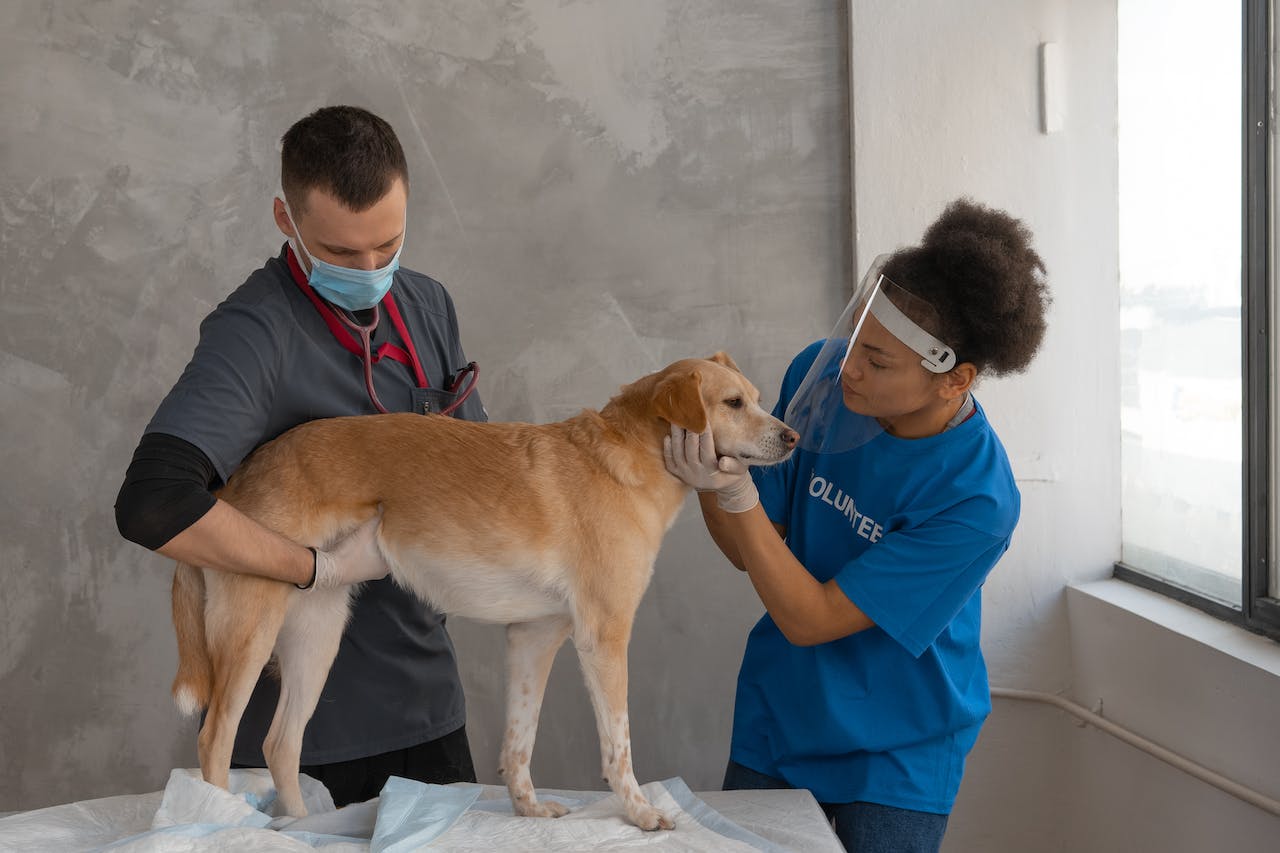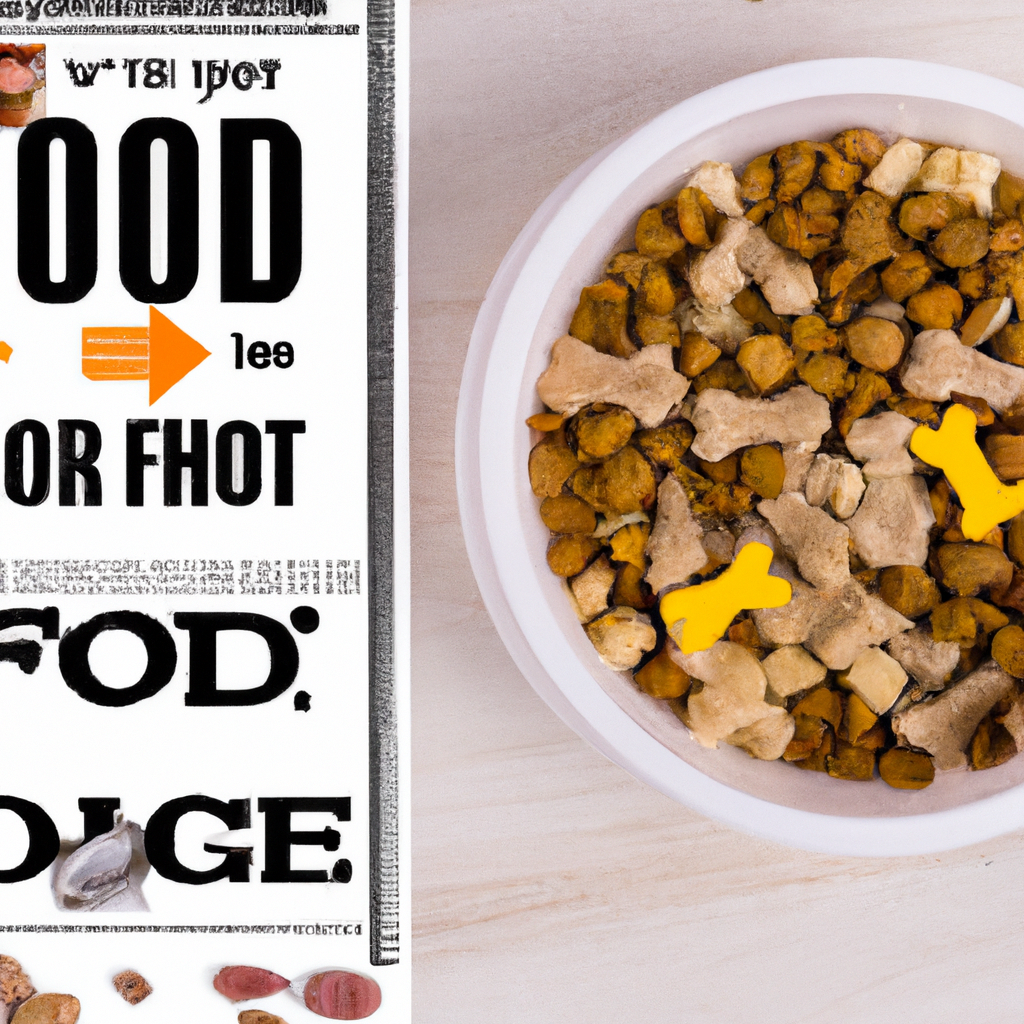Recognizing and Managing Common Digestive Issues in Dogs
Title: Delicate Digestion: A Wagging Tail's Woes Excerpt: Within each furry companion lies a complex world of digestion. From
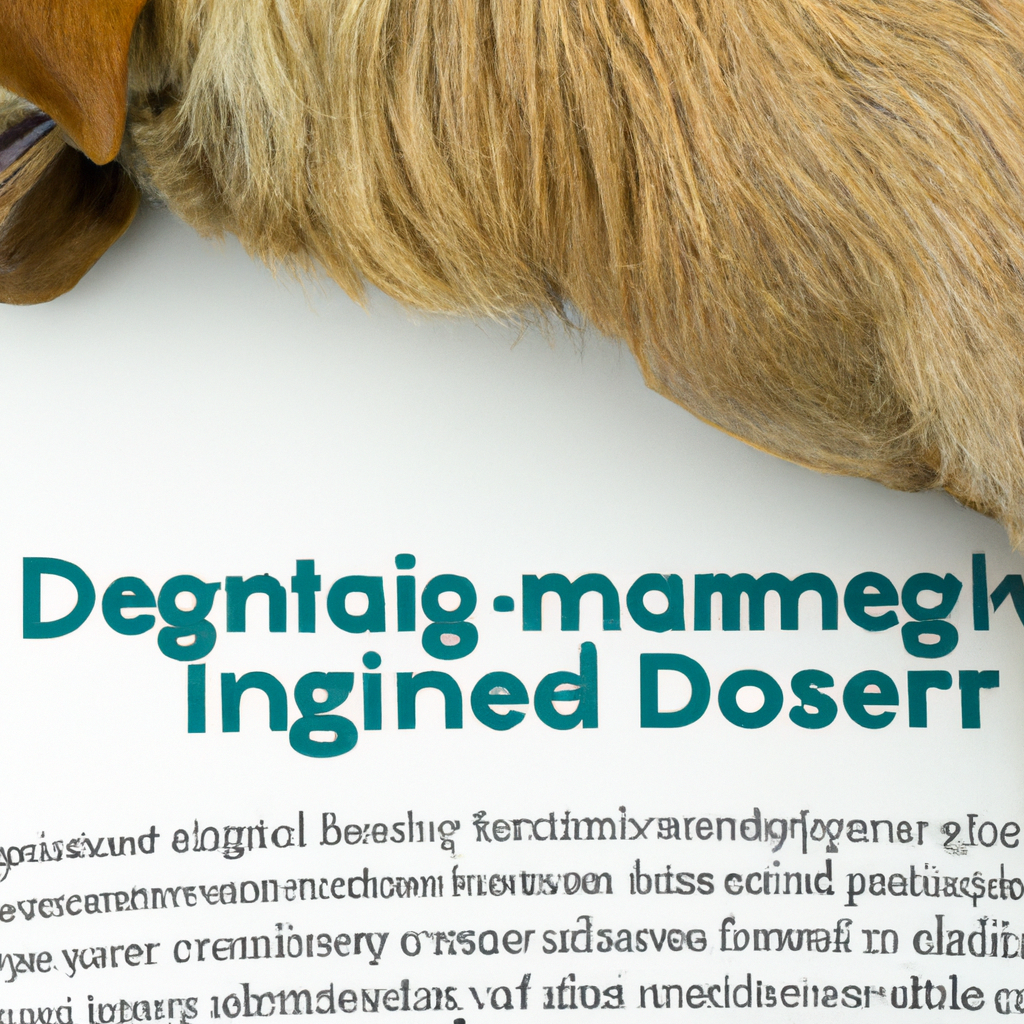
Once upon a time, in the enchanting world of our four-legged companions, there existed a peculiar mystery that would often leave owners scratching their heads in confusion. From the depths of their furry beings, our beloved dogs would unleash a symphony of growls, gurgles, and squeaks, as if they were playing an elaborate melody on invisible instruments. Yes, dear readers, we are about to embark on a journey through the strange and captivating realm of digestive issues in dogs. In this whimsical article, we shall uncover the secrets behind these common ailments and unveil the tools needed to manage them with grace and expertise. So, fasten your seatbelts, for we are about to explore the mysteries of the canine digestive system like never before!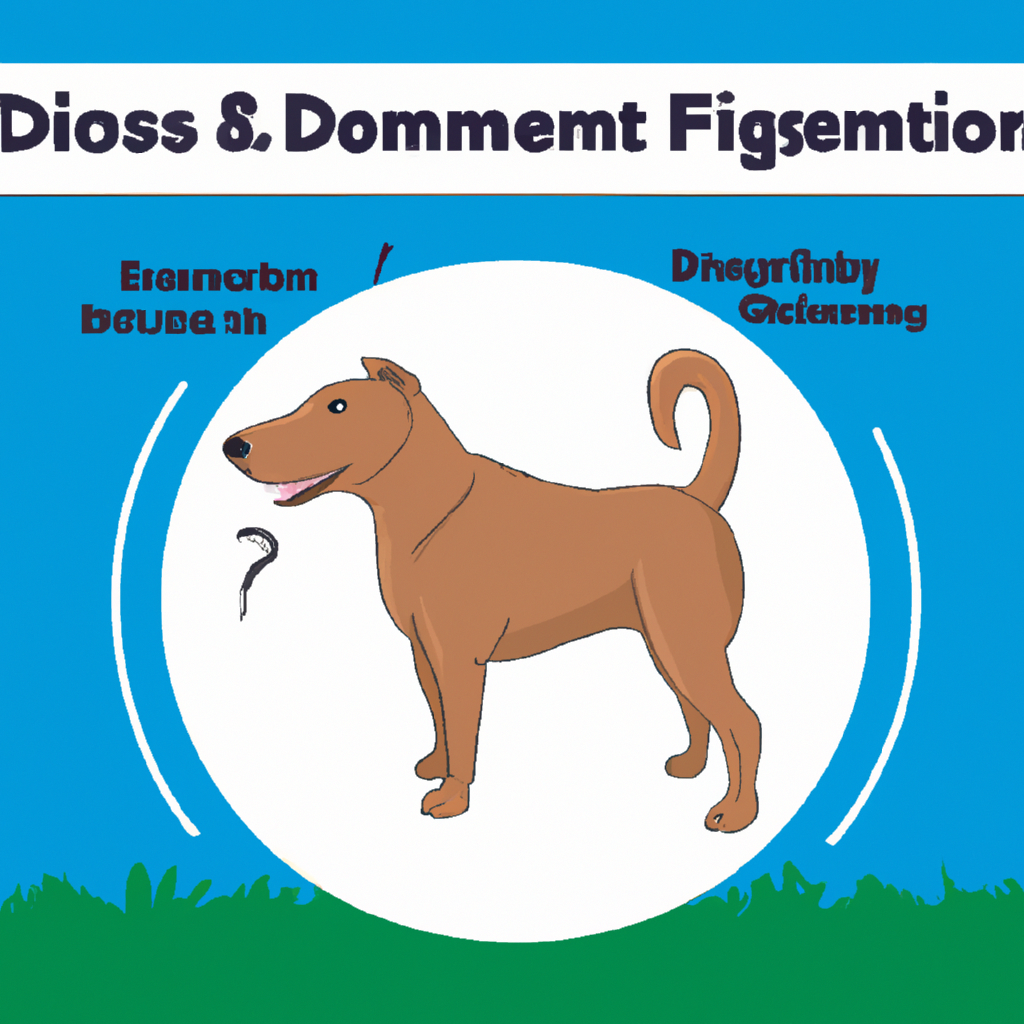
Recognizing the Signs: Identifying Common Digestive Issues in Dogs
Our furry friends sometimes have trouble with their digestive system, just like humans do. It’s important for pet owners to be able to identify the signs of common digestive issues in dogs, so they can take timely action to ensure their pet’s well-being. Here are some key indicators to look out for:
- Vomiting: While the occasional vomit may not be a cause for concern, persistent or frequent vomiting could indicate an underlying digestive issue. It’s essential to pay attention to changes in your dog’s vomit, such as unusual color, consistency, or the presence of blood.
- Diarrhea: Loose stools or diarrhea can be a sign that something isn’t right with your pup’s digestive system. If it’s accompanied by other symptoms like lethargy, fever, or loss of appetite, it’s crucial to seek veterinary advice promptly.
Additionally, keep an eye out for signs such as excessive flatulence, abdominal discomfort, bloating, or sudden weight loss. Any significant changes in your dog’s eating habits or reluctance to eat can also indicate a possible digestive issue. Remember, early recognition of these signs can help you provide the necessary care and prevent potential complications. If you notice any persistent or concerning symptoms, consult with your veterinarian to ensure your precious canine companion gets the appropriate treatment.
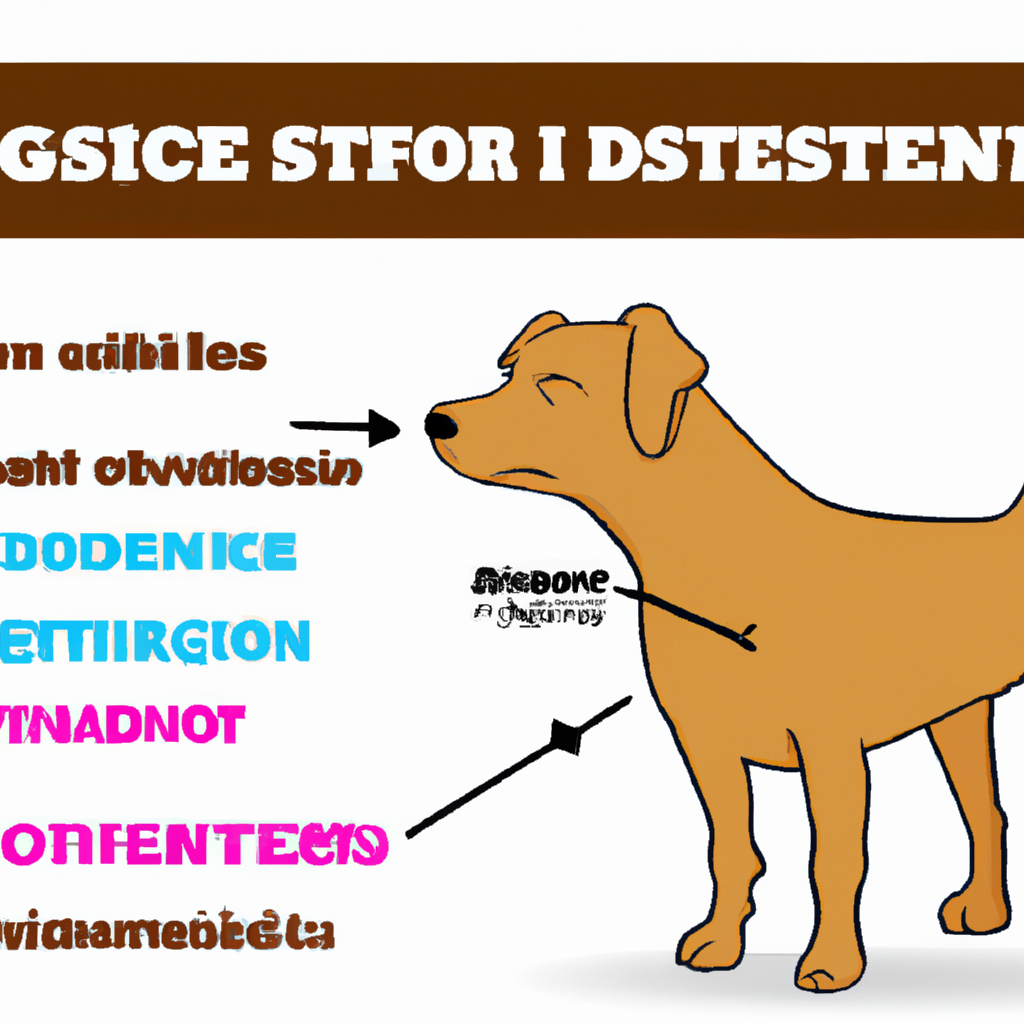
Understanding the Causes: Factors that Contribute to Digestive Problems in Canines
When it comes to digestive problems in our beloved canines, there are various factors that can play a role. It’s crucial for pet owners to be aware of these contributors in order to promote the overall health and happiness of our furry friends. Understanding these causes can help us take preventive measures, seek appropriate treatment, and ultimately provide our canines with a higher quality of life.
Dietary Factors: One of the primary factors that can lead to digestive issues in canines is their diet. Poor nutrition, abrupt changes in food, excessive intake of fatty or spicy foods, and inadequate hydration can all wreak havoc on their delicate digestive system. Furthermore, some dogs have specific dietary sensitivities or allergies, making it essential to choose appropriate food options to avoid triggering any adverse reactions.
Environmental Factors: It might come as a surprise, but environmental factors can also contribute to digestive problems in canines. Stressful situations, such as changes in their living environment, exposure to harmful chemicals or toxins, and even routine disruptions can disrupt their digestive balance. Additionally, inadequate exercise and a lack of mental stimulation can contribute to sluggish digestion. Therefore, it’s vital to provide our furry companions with a stable and stress-free living space, regular exercise, and plenty of mental stimulation to support their digestive health.

Managing Digestive Issues: Effective Strategies and Treatment Options for Dogs
Effective Strategies and Treatment Options for Dogs with Digestive Issues
Dealing with digestive issues can be a challenge for both dogs and their owners. However, with the right strategies and treatment options, you can help your furry friend lead a happy and healthy life. Here, we’ll explore several effective approaches to managing digestive issues in dogs:
- Dietary Modifications: One of the first steps in managing digestive issues is to assess your dog’s diet. Switching to a high-quality, easily digestible dog food can often alleviate symptoms such as diarrhea, gas, and bloating. Additionally, incorporating probiotics into your dog’s diet can help promote the growth of beneficial gut bacteria and support digestive health.
- Meal Frequency and Portion Control: Adjusting how and when you feed your dog can have a significant impact on their digestive system. Instead of providing large meals, consider dividing their daily food intake into smaller, more frequent meals. This can help prevent digestive overload and facilitate better digestion.
- Avoiding Trigger Foods: Certain foods can trigger digestive distress in dogs, just like in humans. Keep an eye out for any specific foods that seem to aggravate your dog’s symptoms and avoid feeding them in the future. Common culprits can include dairy products, fatty foods, and foods high in fiber.
While diet modifications play a crucial role, it’s essential to remember that seeking veterinary guidance is crucial for addressing and managing your dog’s digestive issues. Your veterinarian can provide a comprehensive evaluation, prescribe medications if necessary, and offer further recommendations customized to your dog’s specific needs. Remember, every dog is unique, and finding the right combination of strategies and treatment options may take time.

Prevention is Key: Tips for Maintaining a Healthy Digestive System in Your Canine Companion
Ensuring the well-being of your furry friend’s digestive system is crucial for their overall health. Here are some easy tips to keep your canine companion’s gut in tip-top shape:
- Provide a balanced diet: A well-rounded nutrition is the foundation for a healthy digestive system. Opt for high-quality dog food formulated with the right mix of protein, fiber, and essential nutrients.
- Avoid overfeeding: Portion control is key! Overfeeding can lead to digestive issues like bloating, gas, and discomfort. Follow the recommended serving size guidelines provided by your veterinarian.
- Choose the right treats: While treats can be a great way to bond with your pup, be mindful of the ingredients. Opt for natural, easily digestible treats that won’t upset their stomach.
- Hydration is vital: Make sure your pup always has access to clean, fresh water. Proper hydration aids in digestion, helps prevent constipation, and supports overall health.
Maintaining a healthy digestive system in your canine companion goes beyond just their diet. Consider incorporating these habits into your routine:
- Regular exercise: Physical activity not only keeps your pup fit but also stimulates their digestive system. Daily walks or playtime can help regulate bowel movements and prevent constipation.
- Stress management: Just like humans, dogs can experience stress that affects their gut. Provide a calm environment, engage in positive interactions, and consider puzzle toys or soothing music to alleviate anxiety and aid digestion.
- Regular vet check-ups: Routine visits to your veterinarian are essential for early detection of any potential digestive issues. Your vet can recommend appropriate preventive measures and address any concerns you may have.
- Chewing habits: Encourage chewing on appropriate toys or dental chews, as it aids in breaking down food and promotes saliva production, which contains digestive enzymes.
By following these preventive measures and maintaining a healthy lifestyle for your beloved canine companion, you can ensure their digestive system remains in optimal condition for years to come!
Wrapping Up
As we bid adieu to our exploration of recognizing and managing common digestive issues in our beloved furry companions, it is essential to remember that our dogs rely on us to keep their tummies happy and healthy. With every wag of their tail and every affectionate nuzzle, they silently communicate their gratitude for our vigilant care.
As we embark on this final journey together, it becomes evident that our four-legged friends are not so different from us after all. From occasional tummy grumbles to more severe gastrointestinal conditions, dogs experience a myriad of digestive issues that can disrupt their well-being. Yet, armed with knowledge and a loving touch, we can navigate these challenges and restore their gut equilibrium.
Throughout this article, we peeled back the layers of digestive intricacies, unraveled the mysteries of sensitive stomachs, and demystified worrisome signs of stomach distress. It is empowering to know which red flags to look out for, allowing us to promptly address any issues that arise. By partnering with our trusty veterinarian, we can devise a comprehensive plan tailored to our pup’s specific needs, ensuring their gut health remains on the right track.
Remember, prevention is key – simplicity often leads to greatness. Fostering a healthy diet rich in quality ingredients, regular exercise, and stress management techniques are invaluable tools in maintaining our dog’s digestive harmony. Embracing the comforting rituals of mealtimes, the joy of exploring together, and the security of a loving environment not only nourishes their bodies but also feeds their souls.
We hope that this journey has left you feeling emboldened, ready to embark on a new chapter of caring for your dog’s gastrointestinal well-being. As a pet parent, you hold the power to be their greatest champion, protecting them from potential disruptions that may compromise their digestive health.
So, let us bid farewell to the captivating world of canine digestion but remain steadfast in our pursuit of optimal wellness for our four-legged family members. Through our care and dedication, we can assure them that we understand the language of their digestive tracts, listening closely to their needs and staying attuned to their overall well-being.
May the knowledge gained in these pages serve as your guiding light and a reminder that you are not alone in this grand journey of pet parenthood. As we close this chapter, may your dog’s digestive system flourish, and may the bond between pet and owner deepen, strengthened by the shared understanding of the importance of digestive health.
Farewell, dear reader, and may the digestive wellness of your beloved pup forever be a testament to your unwavering love and commitment.

